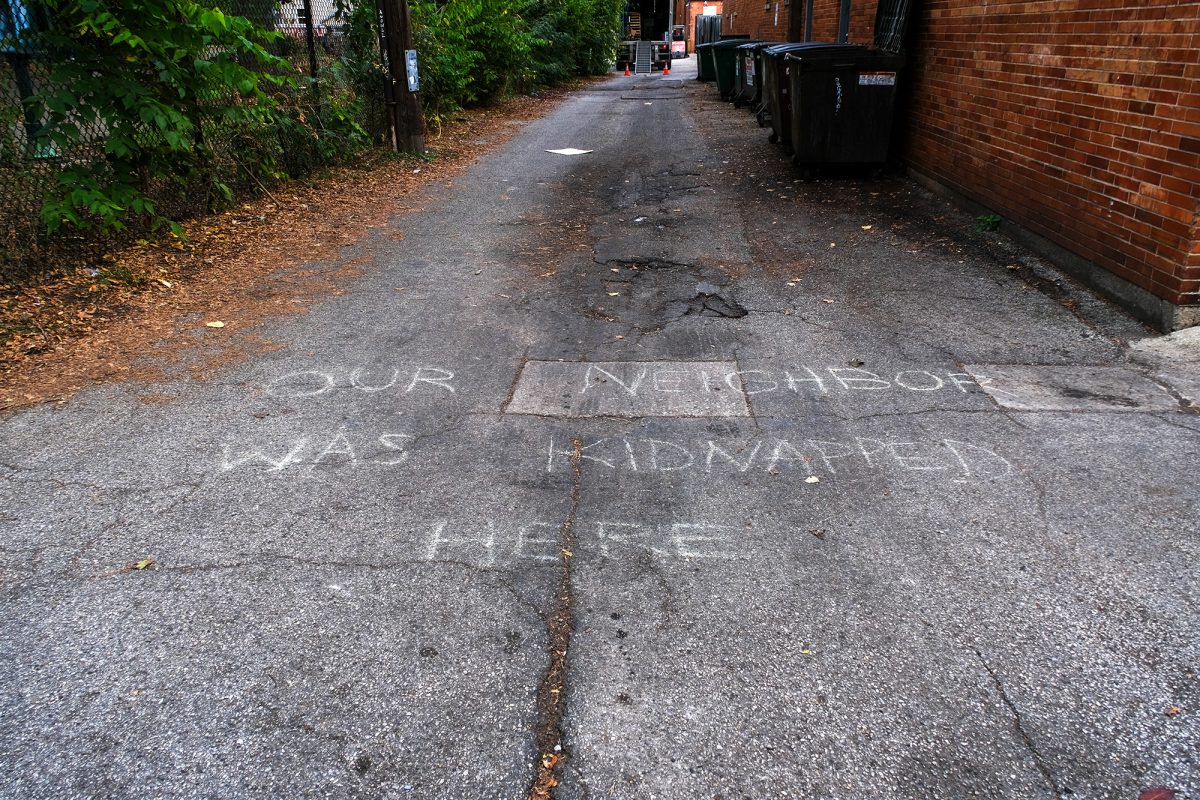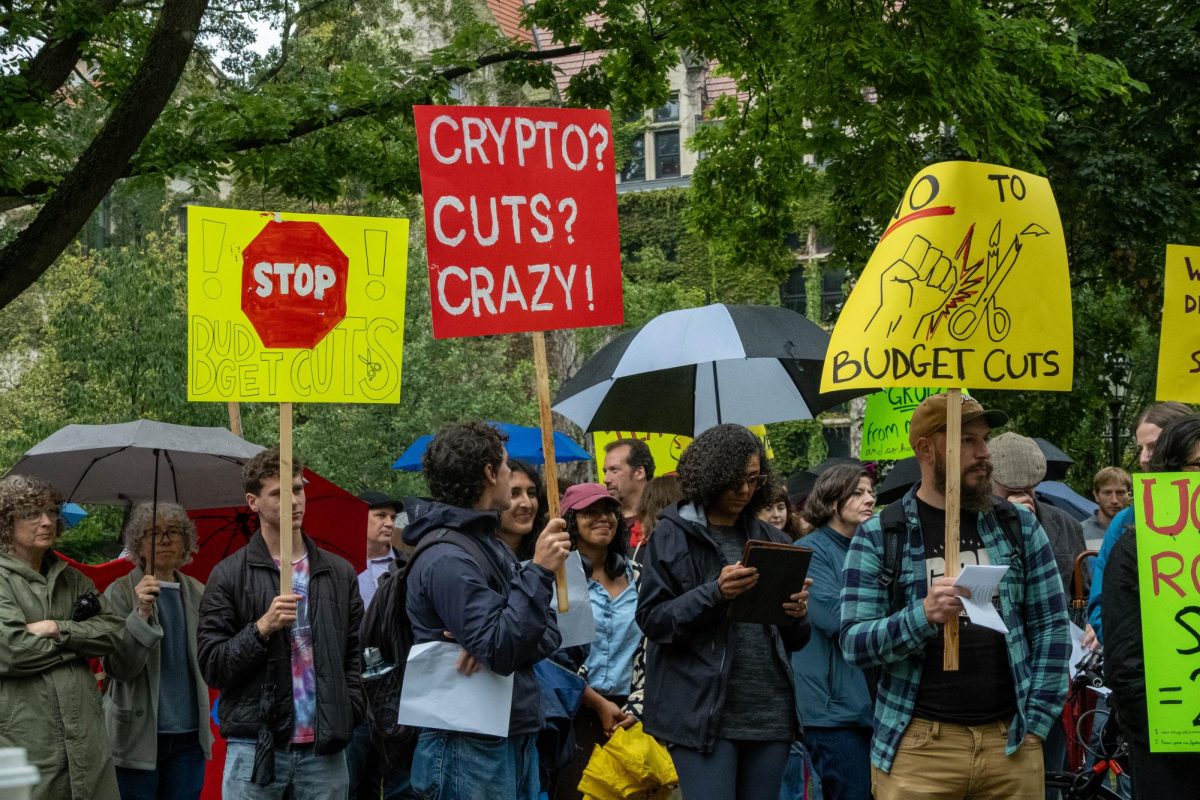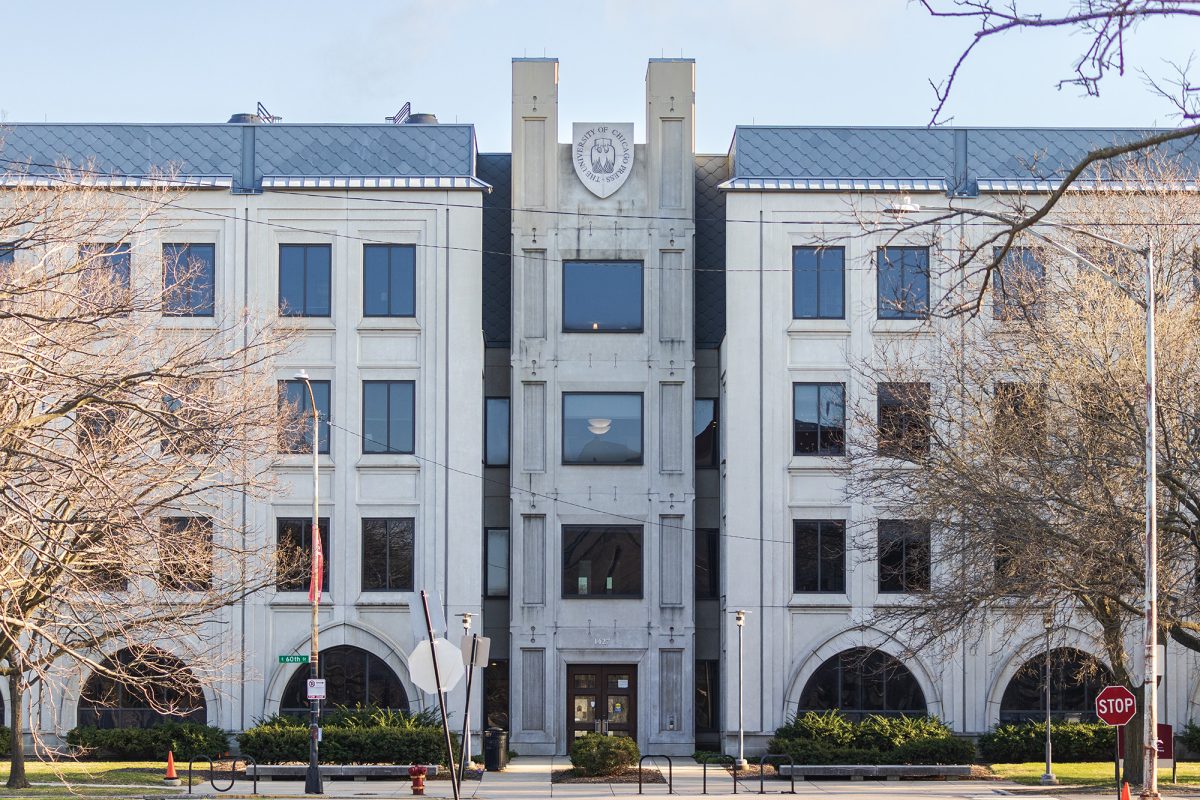The University will recognize a gift endowing the new Ibn Rushd Lectureship in Modern Arabic Language today at 4:00 p.m. in the Pick Hall lounge. The position, created with funds raised by Chicago’s Arab-American community, will permanently provide for the teaching of first- and second-year Arabic.
“The lectureship ensures that we will always have a first-rate Arabic lecturer to give students a grounding in the language,” said Fred Donner, chairman of the department of Near Eastern languages and civilizations. “You can teach all sorts of interesting things about the Near East, but to really go into depth you have to have the languages. How well could you understand the U. S. without knowing any English?”
Rashid Khalidi, professor in the deparments of Near Eastern languages and civilizations and history and the College, and Farouk Mustafa, professorial lecturer in the department of Near Eastern languages and civilizations and the College, will attend today’s event.
“[Arabic is] a very recently popular field,” Mustafa said. “This year we had triple the usual enrollment in Arabic classes. What I like most about teaching it is dispelling the rumor that Arabic is a difficult language. It’s one of the most beautiful and logical languages on earth.”
The lectureship is named after a philosopher unfamiliar in the West but with great Arabic cultural significance.
“Ibn Rushd was a medieval Muslim philosopher known in the west as Averroes. He was a champion of rationalism and very liberal in his thinking. So liberal, as a matter of fact, that some of his works were burned by fundamentalist groups. His name has been taken up by various organizations to represent this lost paradise in Islamic history where diverse ideas coexisted,” Mustafa said. “He lived in Muslim Spain, in the golden age of tolerance among Muslims, Christians, and Jews. His teachings, along with a philosophical commentary on Aristotle, were widely circulated and taught in European universities of the time. The church was also slightly upset with him: they accused those who taught him in Christian schools of a new heresy—Averroeism.”
The new position adds to the University’s tradition of Middle Eastern scholarship, begun by its first president, William Rainey Harper, a scholar of Semitic languages.
“There could be no more timely or more welcome news than the completion of this endowment,” said Janelle Mueller, dean of the humanities. “The distinguished and generous donors have the gratitude of the entire humanities division for assuring vital support for instruction in modern Arabic.”
The donors of the lectureship are Talat M. Othman, Antoin S. Revko, Albert Joseph, Jamal and Salwa Alwattar, and the Andrew W. Mellon Foundation.
-Jennifer Bussell








